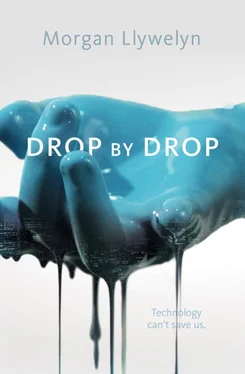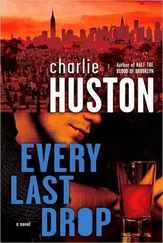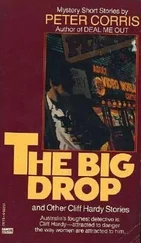“No, it was too easy, Edgar; I was bored out of my skull.” Talking was getting easier for Lila by the minute. Perhaps it was the warmth of the whiskey in her veins; perhaps it was the need to let go after all this time. All the trouble, all the pain.
“My mother didn’t care what I did, she had her, ah, men friends. Sometimes I crossed the bridge and wandered around on the south side. We always lived in cheap furnished rooms and those houses looked like palaces to me. Real homes with a mother and one father instead of a parade of dirty uncles. My favorite was one with a tile roof and blue shutters, and window boxes full of flowers that were changed with the seasons. There was a doghouse in the yard that was an exact replica of it, complete with the shutters and window boxes. I used to imagine living in that little doghouse.”
“Why didn’t you tell me any of this before?”
“It was part of what I was running away from. When I had your money—it seemed like a fortune to me at the time—I decided to use it for the one thing I could change: myself. I hitched a ride to New York, checked into a small hotel under a different name and began studying.
“In school I hadn’t bothered to learn much, but if you want to teach yourself the place to go is the New York Public Library. I read up on all the things that interested me. And I sought out people I could learn from. New York’s great for that too. I went to the best places and began rubbing shoulders with the best people. In Manhattan almost everyone’s from somewhere else; they’re not interested in your past, only in today and tomorrow.
“I was pretty spectacular, you should have seen me at my best. I learned to dress like a fashion model and talk like a university graduate. And eventually I hooked up with a rogue in the IT industry who showed me how easy it was to get my hands on other people’s money.
“I discovered I was magic on a computer. I could uncover personal secrets and private financial data and siphon money out of any bank that wasn’t adequately protected. There are still more of them than you’d think, Edgar, both foreign and American. That’s why it’s so hard to prevent cyber crime.
“In a cashless society with instant real-time money transfers wealth can be accessed across multiple platforms. There used to be a saying: ‘If you have a smartphone you have a bank.’ With the newest AllComs that’s more true than ever. In a single day I could transfer a fortune to an offshore account, exchange it for dollars if necessary, then transfer it again and again until it was untraceable. All the money I could ever want, right at my fingertips, accessed while I was wearing my pajamas and calling up room service.
“I could even come back to Sycamore River and buy the house with blue shutters. People will forgive and forget anything if you have enough money. So I stored what I needed in the best AllCom on the market and caught the train, ready to begin a new life.
“But nothing ever turns out the way you expect, does it?”
Her expression hardened. The green eyes were as opaque as glass. “The day after I arrived I went on one of those southside walks again. The houses I remembered are still there, but now there’s bloody war in every one of them. When I looked through the windows I saw men and women—and children too—hypnotized by their wallscreens, watching people slaughter each other as if it were some kind of game show. And for what? No one wins. The junk people snort up their noses or inject into their veins is a minor poison; killing is a worldwide addiction.
“And to make matters worse, the crowning insult, Edgar; my irreplaceable AllCom with all the information in it doesn’t work anymore. Now you know why I’m so upset.”
“If the tools of modern technology are failing, a hell of a lot of people are going to be upset,” he replied, “because they’ve put their faith in it. But the more complicated something is the more can go wrong. That’s why I like to keep things simple.”
He was wondering if the story she had just told him was as simple as it sounded.
By her own admission the girl—woman now—was far from honest. But her tale was intriguing to a man who loved a good story. She might be telling the absolute truth, but she also might have shaped her narrative to extract the last drop of sympathy from him. Acting was an innate ability. It could be developed and honed, but the best actors believed every word they said—while they were saying them. Working out of a backstory that was temporarily their reality.
“What are you going to do now, Lila?”
“I honestly don’t know.”
“You have a place to stay?”
“I do for a while; I’m not going to ask you to put me up again.”
Their eyes met. They understood one another completely. “I’m not offering,” he said bluntly. “But you can come back for a visit. I’ve got a real good workshop here; I’m not the techie you are, but maybe between us we could fix that AllCom of yours.
“Now, let’s have a meal and then I’ll take you back to wherever you live.”
* * *
Jack Reece continued to monitor the progression of the Change. It was becoming more difficult as the vast network created for and sustained by the computer started a slide toward extinction. Electrical power in the national grid was undiminished, but the necessary portals, due to their vulnerable components, had begun to disintegrate.
According to the news it was happening all around the globe. Governments were growing frantic as they realized the implications for civil society and military might.
Yet it was the small details, not the big picture, that seemed to upset people the most.
Bea Fontaine stood in her bedroom doorway almost in tears. “My nylons, Jack! They’ve turned into soggy tatters. I can’t possibly wear them to the bank in the morning and the Old… Mr. Staunton is very firm about—”
“The bank’s going to be open tomorrow?”
“And every working day, he’s firm about that too.”
“Do you have any makeup? Fake tan, that sort of thing?”
She was insulted. “I never wear fake tan.”
“I’ll drive down to the drugstore and buy some. You can spread it on your legs in the morning and he’ll never know the difference.”
“You’ve been my problem solver since you were a boy,” she said with a smile. “But I don’t understand about my nylons.”
“Nylon is a synthetic material, Aunt Bea, made of polyamides that have a high molecular weight and can be turned into a fiber. It was developed in the 1930s, I think; before that women must have worn cotton or silk stockings.”
“Silk?” Her eyes lit up.
“If the Change is starting on nylon I’ll buy you silk,” Jack promised. “In the meantime I’m on my way to the drugstore.”
As he backed his Mustang out of the two-car garage behind Bea’s house, she watched from the front porch. “One of your tires looks low,” she called to him.
Jack stopped the car and got out. If the tire on the driver’s side was low it was only minimal. He gave it a hard kick.
“Son of a damned bitch !”
He drove to the drugstore very carefully, bought the fake tan and delivered it to his aunt, then drove with even greater care across the bridge to the north side.
When Jack was away for any substantial period of time he left the Mustang with Bud Moriarty, a gentle giant of a man who owned an automotive garage on the north side. Like Jack, Bud was a classic car enthusiast; the two had met at a vintage car show. Bud kept Jack’s convertible in top condition until its owner returned.
Bud shared a house with Lacey Strawbridge, a former runway model going to seed. She claimed to have been a cover girl on the top fashion magazines. When Jack’s car pulled up in front of their house Lacey came running out to meet him, shrugging into a white cotton cardigan to hide the slackness of her upper arms. “Jack Reece, you devil, are you leaving us so soon?”
Читать дальше









